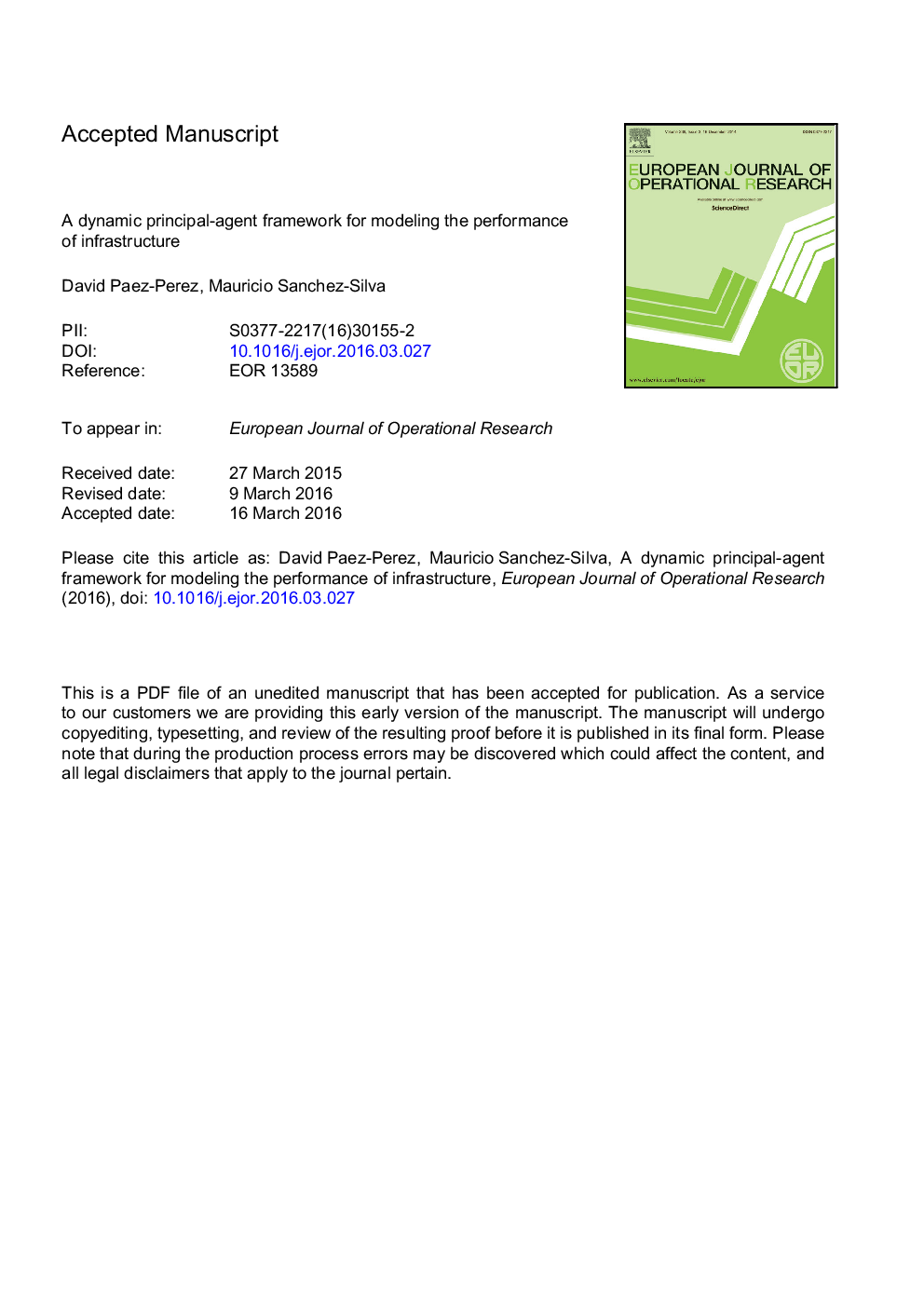| Article ID | Journal | Published Year | Pages | File Type |
|---|---|---|---|---|
| 6895441 | European Journal of Operational Research | 2016 | 38 Pages |
Abstract
This paper presents a novel approach to the problem of infrastructure development by integrating technical, economic and operational aspects, as well as the interactions between the entities who jointly carry out the project. The problem is defined within the context of a Public Private Partnership (PPP), where a public entity delegates the design, construction and maintenance of an infrastructure system to a private entity. Despite the benefits of this procurement method, the relationship between the two entities is inherently conflictive. Three main factors give rise to such conflict: the goals of the public and private party do not coincide, there is information asymmetry between them and their interaction unfolds in environments under uncertainty. The theory of contracts refers to this problem as a principal-agent problem; however, due to the complexity of the problem, it is necessary to recreate a dynamic interaction between the principal (i.e., the public entity) and the agent (i.e., the private entity) while including the monitoring of the infrastructure performance as an essential part of the interaction. The complex relationship between the sequential actions of players and the time-dependent behavior of a physical system is explored using a hybrid agent-based simulation model. The model is illustrated with several examples that show the versatility of the approach and its ability to accommodate the different decision strategies of the players (i.e., principal, agent) and the model of a physical infrastructure system.
Keywords
Related Topics
Physical Sciences and Engineering
Computer Science
Computer Science (General)
Authors
David Páez-Pérez, Mauricio Sánchez-Silva,
